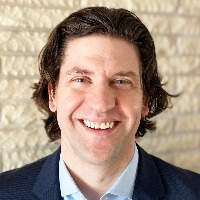Every year, Constellation Generation moves thousands of nuclear fuel bundles safely in and out of reactor cores in a challenging underwater environment, which is heavily dependent on humans to ensure reliability. Students on this team will aim to eliminate the human element of this critical task, by adapting a robotic tool for underwater nuclear use, reducing the risk of an error.
Abstract:
Each year, Constellation moves 10,000 – 20,000 nuclear fuel bundles. Each of these moves must be performed flawlessly, with the bundle being pulled and placed in the proper location (X, Y, and orientation). This entire process happens under 20 – 60’ of water, and is a manual operation that requires significant skill and experience. The reliability of this process has been historically managed through a series of independent checks by humans, which are subject to human error. The purpose of this project is to eliminate that inherent risk, by developing a robotic tool that can indicate the location and orientation of any bundle in the spent fuel pool or vessel with 100% reliability.
The 2023 Constellation MDP team developed a prototype robotic unit capable of precisely locating, and visually indicating, a series of specific points in 2D with a laser. The next challenge for this work is to adapt the tool to the harsh underwater environment of the nuclear reactor cavity. This includes variations in light and laser travel that come with underwater use, as well as adapting the physical robot for use underwater. Students on this team will continue the work of the 2023 team, readying the robotic location tool for its intended underwater use.
Impact:
Moving nuclear fuel is a precise operation, but even the most talented technicians make human errors from time to time. When these errors occur, they are extremely costly, in both a financial and reputational sense. Eliminating these mistakes altogether is one more way we can make nuclear power a safer, clean energy solution for the planet.
Scope:
Minimum Viable Product Deliverable (Minimum level of success)
- Literature review on the challenges and existing approaches (technologies, best practices, and related use cases) to operating robots and lasers underwater, and in a radiological environment
- Develop a functional prototype that can operate in 10 feet of “clean” water (to be tested in the University of Michigan Marine Hydrodynamics Laboratory), and correctly indicate a specific location in 12” and 6” square areas, and illuminate the locations accurately and completely
- Collect feedback from key stakeholders, and incorporate into a final version of the prototype
Expected Final Deliverable (Expected level of success)
- Incorporate stakeholder feedback and refine the prototype
- Verify that the requirements expected in this version of the project have been met
Stretch Goal Opportunities: (High level of success)
- Verify functionality to 50 feet depth (to be verified with calculations and surrogate measurements in the UM Lab)
- Completion of deep water testing offsite
- Demonstrate functionality in a radiological environment
Nuclear Design (1-2 Students)
Specific Skills: Domain knowledge specific to nuclear engineering + mechanical design
Likely Majors: NERS, EngrPhys
Robotics – Movement (1-2 Students)
Specific Skills: Controls, dynamics, manipulation of robotic systems
Likely Majors: ROB, EE, NAME, NERS, ME
Mechanical Design/Underwater Design (1-2 Students)
Specific Skills: Mechanical design skills with specific knowledge and/or experience in an underwater environment, basic understandings of light-water interaction
Likely Majors: NAME, ME, EngrPhys, MSE, practical experience
Computer Vision (3 Students)
Specific Skills: Machine vision and computer vision, real-time signal acquisition and signal processing
Likely Majors: CS, ROB, CE, EE
Additional Desired Skills/Knowledge/Experience
- Interest in nuclear power and clean energy generation
- Successful team-based engineering experience, ideally with system integration. We particularly value engineering competition team and/or large group research experience
- Experience working underwater and/or SCUBA certification
- Leadership skills (of any group)
- Practical fabrication skills: 3D printing, fast prototyping, sensor/hardware integration, CAD, machining, etc.
- Skills/experience working with lasers
Sponsor Mentor

Ryan Pullara
Ryan has a B.S. in Nuclear, Plasma, and Radiological Engineering from the University of Illinois at Champaign-Urbana. Ryan has spent the last 3 years at Constellation, primarily as a Nuclear Fuels Engineer, and has recently transitioned roles to be the Braidwood Site Reactor Services Manager. Ryan has extensive experience in project management, and is a strong advocate for innovation of any kind in the nuclear field.
Executive Mentor

James M. DuBay
Senior Director of Reactor Services
Jim has a B.S. in Nuclear Engineering and Radiological Sciences from the University of Michigan, and an MBA from CU Boulder. He has spent 22 years working in the Nuclear Power Industry, and has worked for 3 of the largest companies in the space (GE, Westinghouse, and Constellation), with a focus primarily on the physical aspects of maintaining the safe operation of Nuclear Reactors. Jim has a passion for innovating to increase reliability and reducing risk, and has the responsibility for the safe execution of all maintenance on or in the 21 nuclear reactors that operate in the Constellation fleet.
Faculty Mentor

Professor Yang Zhang (Y Z)
Nuclear Engineering & Radiological Sciences
YZ’s research can be summarized into two words: Matter and Machine. On the basic science side, his group synergistically combines and pushes the boundaries of accelerated molecular simulations, statistical and stochastic thermodynamic theories, and neutron scattering experiments, with the goal of significantly extending our understanding of a wide range of long timescale phenomena, rare events, and far-from-equilibrium properties of materials from the atomic and molecular level. Particular emphasis is given to the physics and chemistry of liquids and complex fluids, especially at interfaces, driven away from equilibrium, or under extreme conditions. On the applied research side, leveraging their expertise in materials and modeling, his group advances the development of swarm robots and collective intelligence, robots in extreme environments, soft robots and human-compatible machines, and understandable artificial intelligence, which can lead to immediate societal impact.
Weekly Meetings: During the winter 2024 semester, the Constellation team will meet on North Campus on Thursdays from 4:30 – 6:30 PM.
Work Location: Most of the work will take place on campus in Ann Arbor in various student laboratories and development spaces, including the Marine Hydrodynamics Laboratory in West Hall. There is a potential for an offsite trip for deep water testing, depending on the level of progress achieved.
Course Substitutions: CE MDE, ChE Elective, CS Capstone/MDE, DS Capstone, EE MDE, CoE Honors, IOE Senior Design, MECHENG 490, MECHENG 590, NERS 499, ROB 490, ROB 590, SI Elective/Cognate
Citizenship Requirements: Due to Constellation facility access requirements, this project is open to US Citizens or Permanent Residents only.
IP/NDA: Students will sign IP/NDA documents that are unique to Constellation.
Summer Project Activities: No summer activity will take place on the project.
Learn more about the expectations for this type of MDP project
